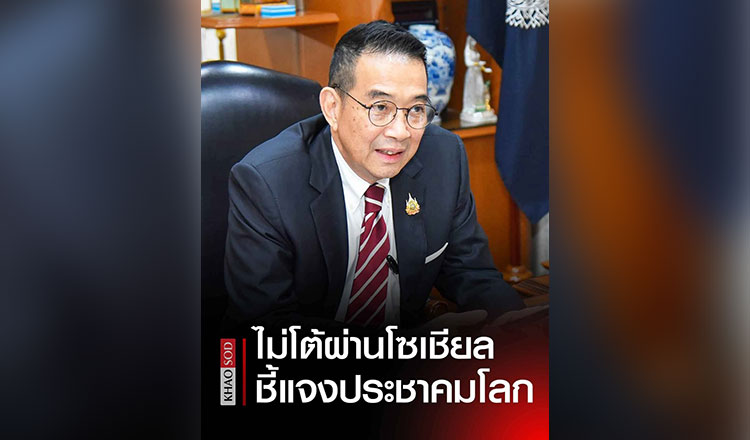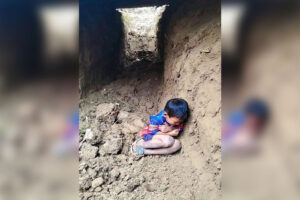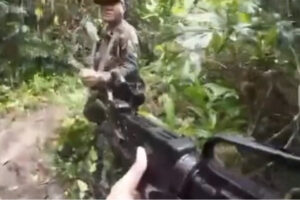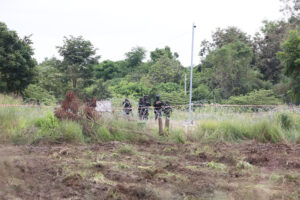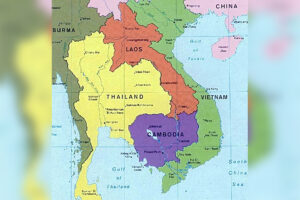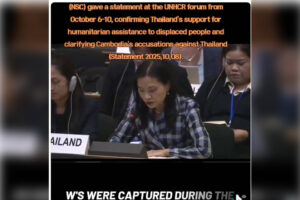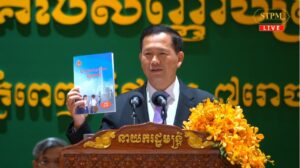Opinion: Behind the Diplomacy: Time for Thailand to Listen, Not Lecture
Khmer Times | In his recent public remarks, Thai Foreign Affairs Minister Maris Sangiampong attempted to project an image of calm, rational diplomacy in addressing the ongoing tensions at the Thai-Cambodian border. While his tone may appear measured, his statements contain deep contradictions, evasions, and patronizing overtones that deserve a direct, truthful response—one grounded in facts and respect for Cambodia’s sovereignty and historical rights.
Diplomacy Must Be Backed by Deeds, Not Just Words
Minister Maris repeatedly emphasized that Thailand prefers to resolve issues through “official channels,” not through “social media,” yet at the same time, he fails to address the provocative posture of the Thai military on the ground, especially around the historic temple zones of Ta Mone Thom, Ta Mone Toch, and Ta Krabei. If Thailand truly seeks peace, why are Thai troops still stationed near sacred Cambodian heritage sites with weapons drawn?
Peace does not come through polished statements to the press—it comes when both sides act with restraint. Cambodia has shown such restraint for decades, protecting our temple zones as national treasures. By contrast, Thailand’s Regional Army 2 continues to issue aggressive warnings and act as if the area is a battlefield instead of a shared cultural heritage zone.
ASEAN Charter Cuts Both Ways
Minister Maris accused Cambodian leaders of making comments that interfere with Thai domestic politics and violate the ASEAN Charter. This is a distortion. It is not interference to voice concern when Thai politicians and nationalist figures publicly threaten to reclaim Cambodian provinces, call for military occupation, or distort the history of shared heritage sites. When Sondhi Limthongkul and other Thai figures talk about invading Battambang or Siem Reap, is that not interference? Is that not dangerous extremism?
Cambodia has been forced to speak out not from hostility, but from necessity—to defend our land, our people, and our legacy. Let it be clear: calling for peace and respect is not incitement.
MOU2000 is a Mutual Commitment, Not a Weapon
The Thai Ministry insists that MOU2000 is fair and binding. Cambodia agrees—when it is respected in good faith. But the record shows that Thailand has weaponized ambiguity and domestic disinformation to delay or derail progress. Claims that Cambodia’s use of a 1:200,000 French colonial map is a “tactic” are both historically ignorant and deeply disingenuous.
That map was the basis of the International Court of Justice’s 1962 ruling on Preah Vihear, and it reflects real colonial-era boundary agreements. Cambodia is not inventing history—we are honoring it.
ICJ Has Jurisdiction—Whether Thailand Likes It or Not
Minister Maris claims that the International Court of Justice (ICJ) has “no authority” to hear new Cambodian cases regarding the border. This is incorrect. While Thailand may have rejected the ICJ’s jurisdiction in general since the 1960s, it remains bound by previous cases and any jurisdiction accepted through specific treaties or declarations. Cambodia’s call for international adjudication is not an act of defiance, but an appeal to law and stability in the face of Thai ambiguity and troop escalation.
If Thailand is confident in its claims, why fear legal arbitration? Why block international mechanisms?
Stop Talking About “Reducing Troops”—Start Doing It
The Minister says tensions have decreased and that Thailand wants to reduce troops. Yet Cambodian villagers continue to live in fear near Ta Moan Thom and other disputed zones, watching Thai soldiers move with impunity. This hypocrisy must end. Cambodia has never initiated conflict at the border. We maintain a defensive stance—nothing more.
If Thailand truly wants peace, it should withdraw its troops from temple zones, allow the JBC to operate transparently, and commit to a shared, demilitarized heritage zone model.
Don’t Lecture Cambodia on Sovereignty While Undermining Ours
Maris ends his speech by affirming that Thailand “will protect its sovereignty.” That is his right. But so too will Cambodia. Sovereignty cannot be defined as Thailand’s unilateral right to decide what land, map, or temple is “disputed” while dismissing Cambodian historical records and lived reality. Sovereignty must be mutual, not selective.
Thailand cannot demand Cambodian silence on social media while its own military continues to act provocatively, and its public figures openly call for expansionism.
Cambodia Seeks Dialogue, But Will Never Accept Disrespect. Cambodia is committed to peace, mutual respect, and regional stability. We welcome dialogue through bilateral or international mechanisms. But we will never be silenced when our land, our history, and our people are threatened.
Diplomacy without honesty is just theater. If Thailand truly wants peace, it must match its words with action. Cambodia stands ready—not for provocation, but for partnership. But partnership requires equality, not arrogance.
By Roth Santepheap, Geopolitical Analyst based in Phnom Penh, Cambodia. The views and opinions expressed are his own.

